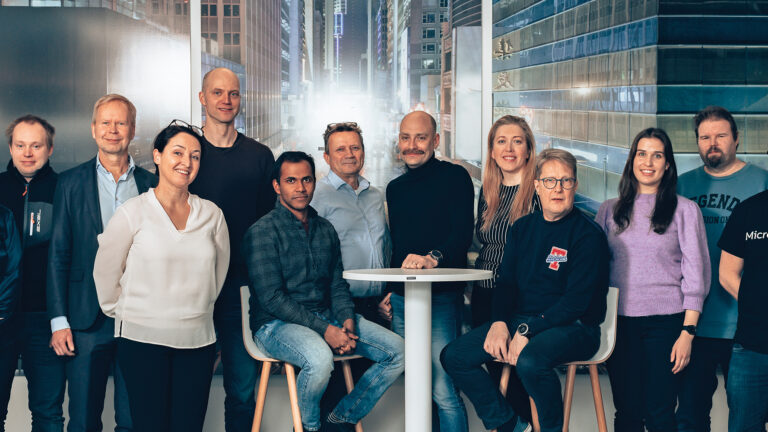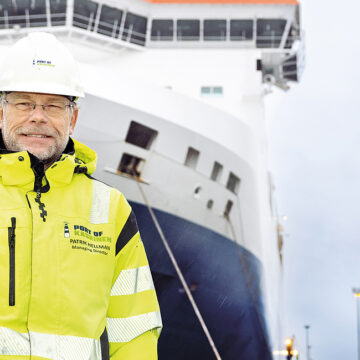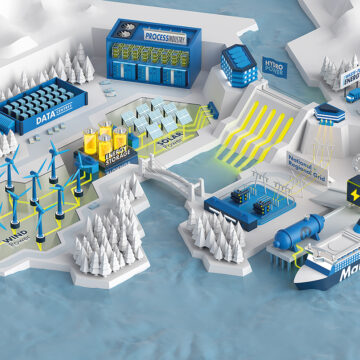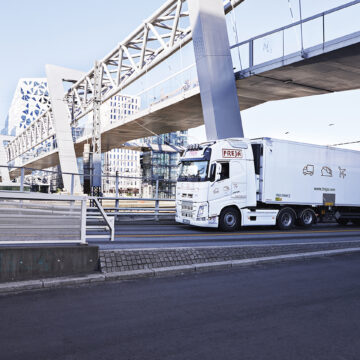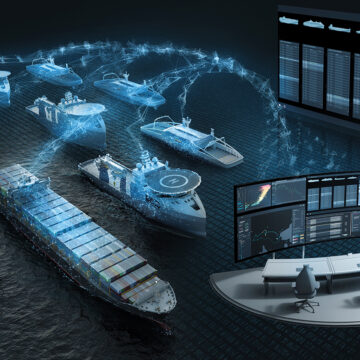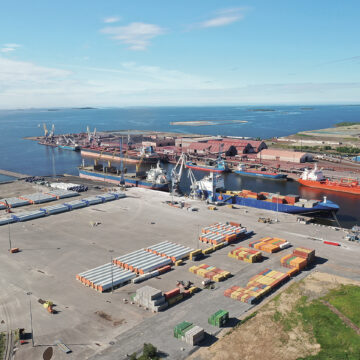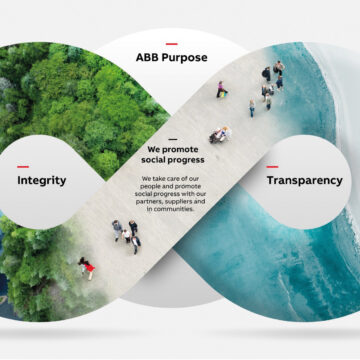
Digitalisation and services go hand in hand
Traditionally, services have played a supporting role in industrial enterprises, but today they may even be their primary business area. This is all thanks to digitalisation. In many traditional industrial companies, services are now equally as important as equipment manufacture, or they may even have become a business area that defines manufacture. The reason for this development is digitalisation, which over the last few years has rumbled in through the front door with a bang.
“Digitalisation is finally becoming a reality in the world and not just in our visions,” says Pasi Tuominen. He is one of the pioneers of digitalisation in Finland and predicted as early as 1999 that it would soon be possible to connect things via the Internet. It took a little longer than he imagined, but as the founder and Managing Director of Wapice, a Vaasa-based company offering software services, he now has a grandstand view of the realisation of his vision.
According to Tuominen, the fact that the significance of digitalised solutions has increased dramatically for companies is the result of enterprises’ continuous need to make their business operations more effective.
“Companies are constantly looking for new ways to increase their profitability. What’s more, companies can capitalise on digitalisation not only for cost-effective operating procedures but also to create entirely new services.”
The challenge today is not the availability of information but how it is utilised. In open systems, digitalisation enables the linking of data which have previously been held in separate spaces. This opens up new business opportunities for companies that know how to make use of it.
“Surprising and innovative services are created precisely from these kinds of data combinations that at first glance have nothing to do with each other,” Tuominen says and envisages how, for example, energy consumption could be utilised in health care for the elderly.
“Energy consumption data allows the monitoring of patients’ behaviour and any changes can be reacted to immediately. Modern equipment with sensors churn out data faster than ever, less expensively and in a more targeted way.”
What kinds of companies fare the best in the new digital environment? According to Tuominen, they are companies that focus on being excellent in their core business and yet remain sensitive to the opportunities offered by digitalisation. Imagination, or the lack of it, is the only limitation to companies’ possibilities for exploiting digitalisation, as long as they use the best technical solutions available.
“Digitalisation is advancing at breathtaking speed, and to be successful you need to be one step ahead of the competition at all times. Right now, for example, everyone is talking about the Internet of Things, or IoT which we have been engaging in since the day we started,” says Tuominen.
Tuominen himself is currently especially interested in the effects of augmented reality and artificial intelligence on various areas of business. He is expecting new ways of visualising products and services to bring significant changes to many industries and people’s everyday lives in the next few years.
“Wapice is already offering solutions where augmented reality can be used with a mobile phone, tablet computer or HoloLenses,” says Tuominen.
The challenges with adopting new service models include not only changes in operating culture, but numerous ethical questions that are emerging with digitalisation.
“Technology is not the problem but rather what we are authorised to do. While developing services, many companies have to consider who has rights to the information collected and how it can be utilised. This requires open and direct society-wide dialogue,” Tuominen says.
What kind of a future does this veteran of digitalisation envision for Ostrobothnian companies? Tuominen is optimistic and believes that the companies in the region will have great opportunities to be at the very forefront of development also in the future.
“The companies in the region are used to adopting new trends and making good use of opportunities quickly, plus they have the necessary high-quality technological know-how.”
He adds, however, that they cannot afford to be complacent because development is accelerating extremely rapidly.
“Ignorance is a threat, but if we stay strong and believe in what we’re doing, while staying sensitive to the opportunities digitalisation offers, the region’s companies will have every opportunity to offer the best services in the world.”

